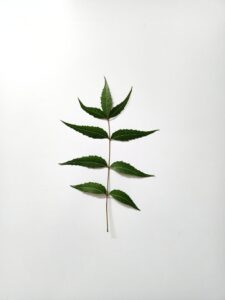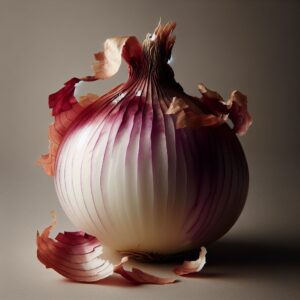
Experience Luscious Locks After Baby
Welcome to a new chapter in your life – motherhood. It’s a time of joy, love, and yes, a lot of changes, including your hair. You may notice your once full and vibrant hair now seems to be falling out more than usual. This is a common postpartum experience, but fear not! The secret to getting back those luscious locks lies in your diet, specifically iron-rich foods.
Key Takeaways: Nourishing Hair from Within
-
Postpartum hair loss is common and can be managed with the right nutrition.
-
Iron is a critical nutrient for hair growth and scalp health.
-
Combining iron-rich foods with vitamin C enhances iron absorption.
-
A balanced diet with adequate iron can help restore hair’s natural thickness.
-
Consult with a healthcare provider before starting any new dietary regimen.
Nourishing Your Scalp: Iron’s Role in Hair Regeneration
Let’s talk about your scalp – it’s the foundation for those strands of hair. Just like a plant needs healthy soil to grow, your hair needs a nourished scalp. Iron is the nutrient that can make a world of difference here. It’s not just for energy; iron is a building block for your hair, giving it strength and vitality from the roots to the tips.
But how does iron work its magic? It’s all about the role it plays in carrying oxygen to your hair follicles. Without enough iron, your follicles may not get the oxygen they need, leading to slower hair growth and even hair loss. That’s why ensuring you’re getting enough iron in your diet is crucial, especially after giving birth.
Why Iron Matters for Postpartum Recovery
During pregnancy, your body goes through incredible changes, and your hair is no exception. You might have enjoyed thicker, fuller hair due to hormonal shifts. But after delivery, as your hormone levels normalize, you might face postpartum hair shedding. This is where iron comes in – it’s essential for the recovery phase, helping to replenish your hair and maintain a healthy growth cycle.
Think of iron as the trusty sidekick for your hair follicles, supporting them as they bounce back from the stress of childbirth. It’s not just about vanity; it’s about feeling like yourself again, and iron-rich foods are a natural, effective way to get there.
Scientific Insights: How Iron Boosts Hair Follicle Health
It’s not just anecdotal evidence; science backs up the importance of iron for hair health. Studies have shown that iron deficiency is linked to hair loss, which makes sense when you consider iron’s role in the body. It’s a key component of hemoglobin in your blood, which transports oxygen to every cell, including those in your hair follicles.
When your iron levels are up to par, your hair follicles are like well-oiled machines, working efficiently to grow strong and healthy hair. On the flip side, when iron is lacking, your hair growth cycle can be disrupted, leading to weaker hair and even hair loss.
Remember, your hair’s health is a reflection of your overall well-being. By focusing on a nutrient-rich diet, you’re not only supporting your hair but your entire body as it recovers and adjusts to life post-baby.
Top Dietary Picks: Iron-Rich Champions for Hair Growth
Now that we understand the significance of iron for hair health, let’s dive into the best sources to include in your diet. These iron-packed foods are not only delicious but also the champions in supporting postpartum hair growth and overall health.
Lean Meats: More Than Just Protein
Lean meats are a powerhouse when it comes to iron content, especially red meat, poultry, and fish. They contain heme iron, which is the type of iron most easily absorbed by your body. Including a serving of lean meat in your meals not only gives you a protein boost but also ensures your iron levels are up to support hair growth.
-
Beef: Choose grass-fed varieties for higher nutrient content.
-
Chicken: Opt for the darker cuts like thighs for more iron.
-
Turkey: A great option that’s lower in fat but rich in iron.
-
Fish: Salmon and tuna are not just for omega-3s, but are also good iron sources.

Verdant Victors: Spinach and Other Leafy Greens
Leafy greens like spinach, kale, and Swiss chard are not only vibrant and full of flavor but also packed with non-heme iron, which is the type found in plant-based foods. These verdant victors are essential for vegetarians and meat-eaters alike, offering a wealth of nutrients that support hair growth and overall vitality.
-
Spinach: Easily incorporated into salads, smoothies, or as a cooked side.
-
Kale: A nutrient-dense option that’s versatile in many dishes.
-
Swiss Chard: Adds color and iron to your plate.
-
Collard Greens: A southern favorite that’s great for your hair and heart.

Beans and Legumes: Plant-Powered Iron Sources
Beans and legumes are not just for vegetarians; they’re a fantastic source of iron for everyone. They’re versatile, affordable, and loaded with plant-based iron. Whether you choose lentils, chickpeas, or black beans, these legumes can be the foundation of many hair-healthy meals.
-
Lentils: Quick to cook and perfect for soups and stews.
-
Chickpeas: Great in salads, hummus, or roasted as a crunchy snack.
-
Black Beans: A staple in Mexican cuisine, full of flavor and iron.
-
Kidney Beans: Ideal for chili and rich in iron and protein.

Making the Most of Iron: Absorption and Combining Nutrients
To truly benefit from these iron-rich foods, it’s crucial to understand how to maximize iron absorption. Iron comes in two forms: heme and non-heme. Heme iron, found in animal products, is readily absorbed by the body. Non-heme iron, found in plants, requires a little help to boost its absorption.
Here’s the trick: pair your non-heme iron sources with vitamin C-rich foods. Think bell peppers, oranges, strawberries, or tomatoes. Vitamin C acts like a key, unlocking the door for non-heme iron to enter your bloodstream more effectively.
Additionally, avoid consuming iron-rich foods with substances that can inhibit iron absorption, such as calcium-rich foods or coffee, at the same meal. Instead, space them out throughout the day to ensure you’re getting the full benefit of the iron in your diet.
Remember, a balanced approach is best. By combining different sources of iron and paying attention to absorption, you’re setting the stage for a full head of healthy postpartum hair.
Optimizing Iron Intake with Vitamin C
Here’s a winning combo for your hair: iron and vitamin C. Vitamin C is like a boost button for iron absorption, especially the non-heme iron from plant sources. By pairing iron-rich foods with those high in vitamin C, you’re not just eating smart; you’re giving your hair the ultimate treat. Squeeze some lemon juice on your spinach salad or enjoy a fresh orange with your lentil soup. It’s an easy yet effective step to make sure your body gets the most out of those iron-rich foods.

The Iron-Biotin Synergy for Hair Recovery
Iron is crucial, but it’s not a solo act. Meet biotin, another star for hair health. Often found in foods like nuts, and whole grains, biotin works hand in hand with iron to strengthen hair and promote growth. Think of iron and biotin as a dynamic duo, with iron boosting oxygen supply to the follicles and biotin building up hair strength. Ensure your meals have a balance of both to support your hair recovery journey.
Creative Cuisine: Infusing Iron into Your Postpartum Diet
Getting enough iron doesn’t mean eating the same thing every day. Get creative in the kitchen! There are countless ways to infuse iron into your meals without sacrificing taste or variety. From hearty stews to vibrant salads, the options are endless. It’s about making smart, delicious choices that will not only satisfy your taste buds but also fortify your hair.
Simple Swaps: Boosting Iron with Every Meal
Boosting your iron intake can be as simple as making small swaps in your daily meals. Trade in your regular breakfast cereal for an iron-fortified option, or choose whole grain bread over white for your sandwiches. Opt for quinoa instead of rice — it’s a complete protein and a fantastic source of iron. These simple changes can make a big difference in your iron levels and, consequently, your hair health.
Iron-Rich Snacks: Quick Bites for Hair Revival
Snacks are a great opportunity to sneak in some extra iron. Swap out chips for roasted pumpkin seeds or make a trail mix with dried fruit and nuts. Hummus made from iron-rich chickpeas is perfect with raw veggies. Not only are these snacks delicious, but they also provide a quick iron boost to support your hair growth throughout the day.
Beyond Iron: A Holistic Approach to Postpartum Hair Care
While iron is a superstar for postpartum hair growth, it’s not the only nutrient that matters. A holistic approach to hair care involves a symphony of nutrients working together to restore and maintain your hair’s health. It’s about looking at the big picture and nurturing your body as a whole, which in turn, reflects in the vitality of your hair.
Nutrients Collaborating for Hair Growth
Just as a band needs multiple instruments to create a harmonious tune, your hair needs a variety of nutrients to flourish. Protein, omega-3 fatty acids, zinc, and vitamins A, C, D, and E all play vital roles in hair health. Protein is the building block of hair, so ensure you’re getting enough through your diet. Omega-3s, found in fish and flaxseeds, help keep your scalp hydrated. Zinc aids in tissue growth and repair, and a mix of vitamins can help protect your hair from environmental stressors and aid in sebum production.
-
Protein: Lean meats, dairy, and legumes are great sources.
-
Omega-3 fatty acids: Incorporate fish, walnuts, and chia seeds into your diet.
-
Zinc: Boost your intake with nuts, whole grains, and dairy products.
-
Vitamins A, C, D, and E: Colorful fruits and vegetables are packed with these.
Self-Care: Stress Management and Hair Health
Let’s not forget the impact of stress on your hair. Stress can actually disrupt the normal hair growth cycle, leading to shedding. Managing stress is a key component of postpartum hair care. Techniques like mindfulness, yoga, and adequate sleep can help keep stress at bay. Also, don’t hesitate to reach out for support from friends, family, or professionals. Taking care of your mental health is just as important as nourishing your body with the right nutrients.
-
Mindfulness: Practice meditation or deep-breathing exercises.
-
Yoga: Join a class or follow online sessions to help relax your body and mind.
-
Sleep: Aim for 7-9 hours of quality sleep to help your body recover and regenerate.
-
Support: Connect with loved ones or seek professional help if needed.

Frequently Asked Questions
What Makes Iron Essential for Postpartum Hair Growth?
Iron is essential for postpartum hair growth because it plays a critical role in the production of hemoglobin, which carries oxygen to your cells, including those that stimulate hair growth. During the postpartum period, your body is recovering from childbirth and may be depleted of essential nutrients, including iron. Replenishing iron stores can help improve the oxygenation of hair follicles, which is crucial for hair regrowth and strength. Plus, maintaining adequate iron levels can help prevent the hair loss that many new mothers experience.
Think of iron as the fuel for your hair follicles. Just like a car needs gas to run, your hair follicles need iron to produce strong, healthy hair.
Can Too Much Iron Affect Hair Health?
Balance is key in all aspects of health, and this holds true for iron intake as well. Too much iron can be just as problematic as too little. Excess iron can lead to a condition called hemochromatosis, where iron builds up in the body, potentially causing damage to organs, including your skin and hair follicles. This can lead to hair loss, among other health issues. It’s important to get your iron levels checked before starting any new supplement regimen and to focus on getting the right amount through a balanced diet.
Which Iron-Rich Foods Are Best for Vegetarians?
Vegetarians can maintain healthy iron levels by incorporating a variety of plant-based iron sources into their diets. Some of the best options include:
-
Lentils and beans, like kidney beans and chickpeas, which are not only rich in iron but also high in protein.
-
Seeds, such as pumpkin, sesame, or sunflower seeds, are tasty as a snack or sprinkled over salads.
-
Tofu and tempeh, which are soy-based proteins that carry a good amount of non-heme iron.
-
Whole grains, like quinoa and fortified cereals, offer a hearty dose of iron.
-
Nuts, especially cashews and almonds, which can be eaten as a snack or added to various dishes.
-
Dark leafy greens, including spinach and kale, are excellent sources of iron when eaten in larger quantities.
Remember, combining these non-heme iron sources with vitamin C-rich foods will significantly enhance iron absorption, making them even more effective for hair health.
How Can Vitamin C Help With Iron Absorption for Hair Growth?
Vitamin C is a potent enhancer of iron absorption, especially when it comes to plant-based non-heme iron. It converts the iron into a form that is more easily absorbed by your body. This is particularly important for hair growth, as adequate iron levels are necessary for delivering oxygen to hair follicles. To make the most of this nutrient partnership, include foods like citrus fruits, bell peppers, strawberries, and tomatoes alongside your iron-rich meals.
What Other Nutrients Support Postpartum Hair Recovery?
While iron is a star player in hair recovery, it’s not the only nutrient on the team. A range of vitamins and minerals contribute to the health of your hair after childbirth:
-
Zinc: It helps with cell reproduction and tissue growth and repair, which are essential for hair health.
-
Vitamin D: Low levels have been linked to hair loss, so getting enough can support hair regrowth.
-
Biotin: Part of the vitamin B family, it’s known for strengthening hair and nails.
-
Omega-3 fatty acids: Found in fish, flaxseeds, and walnuts, they can improve scalp health.
-
Protein: Hair is primarily made of protein, so adequate intake is necessary for hair maintenance and growth.
Each of these nutrients plays a specific role in maintaining and enhancing hair health. By including a variety of these in your diet, you’re giving your body the best chance to bring back that postpartum hair shine and strength.
In conclusion, embracing a diet rich in iron and other essential nutrients is a safe and effective way to support your hair health postpartum. Remember to focus on a balanced diet, consider the timing of your meals for optimal nutrient absorption, and consult with a healthcare professional to tailor your nutritional intake to your specific needs. With the right care from the inside out, you can enjoy a head full of healthy hair as you embark on the beautiful journey of motherhood.


